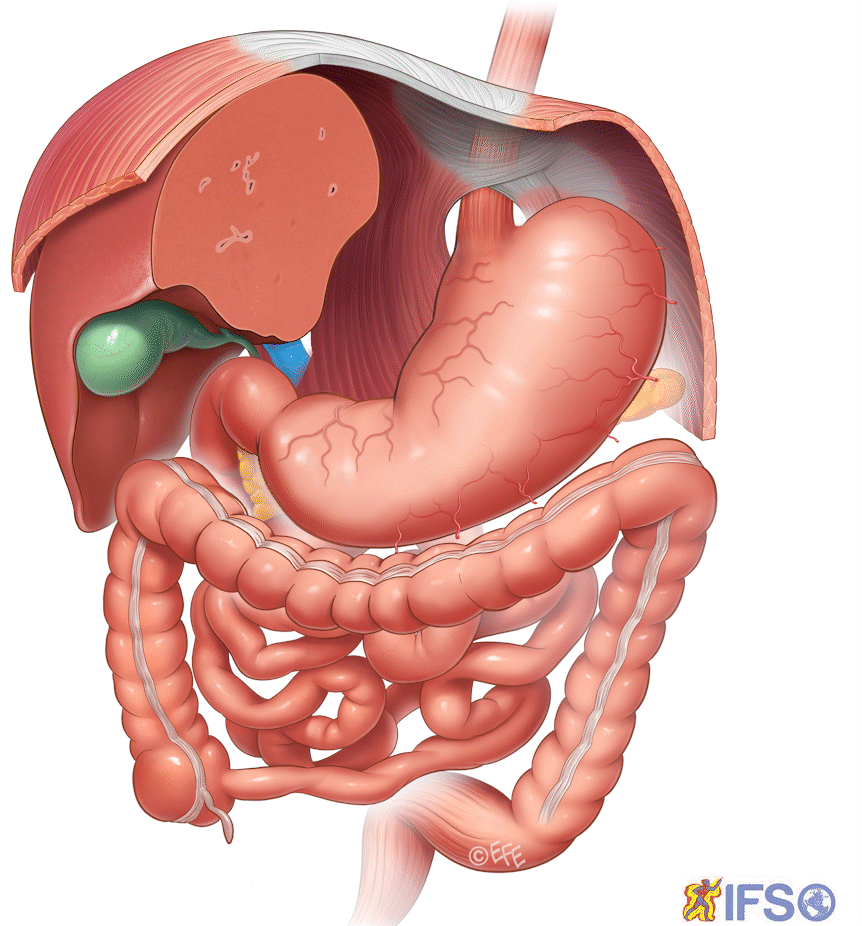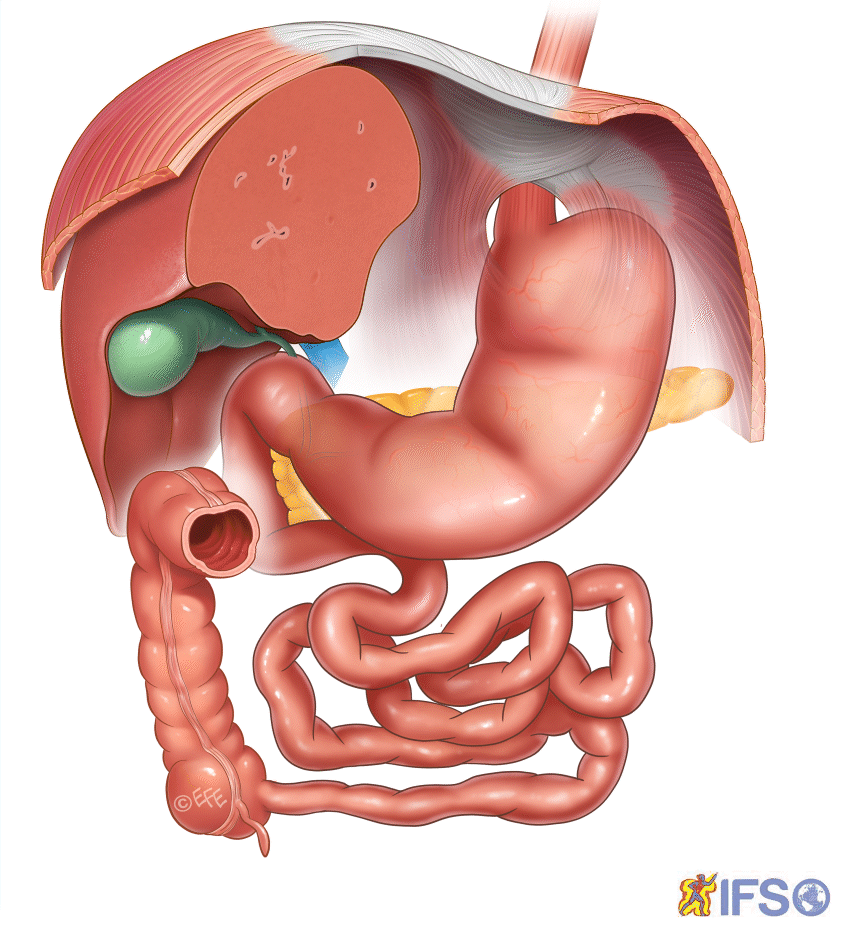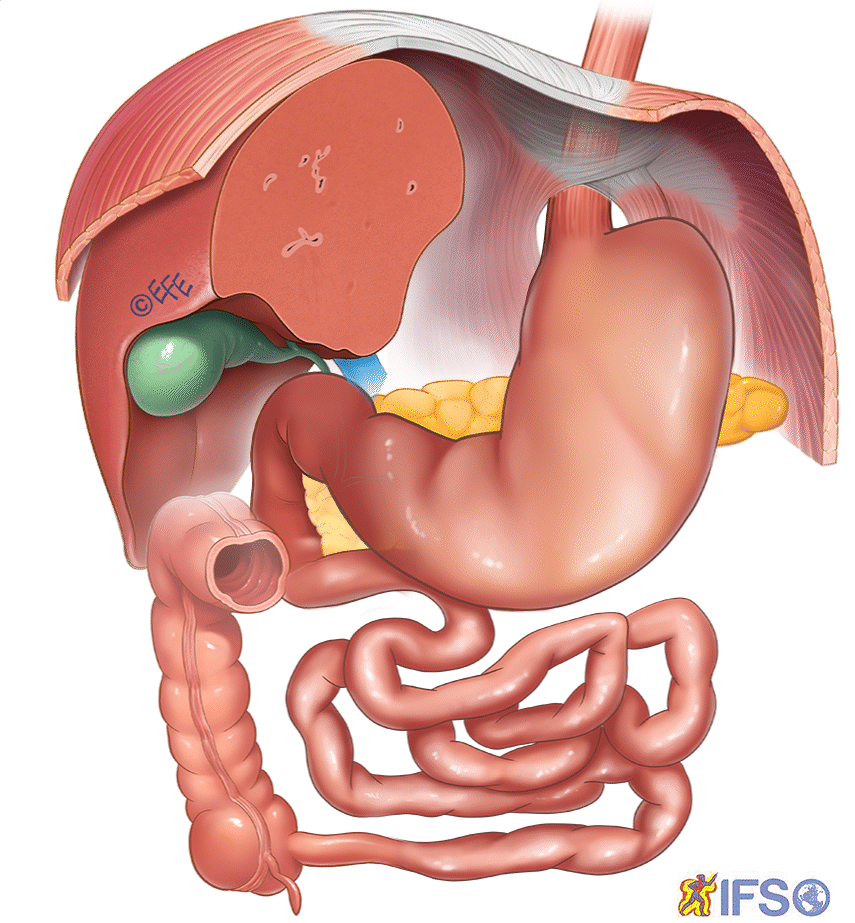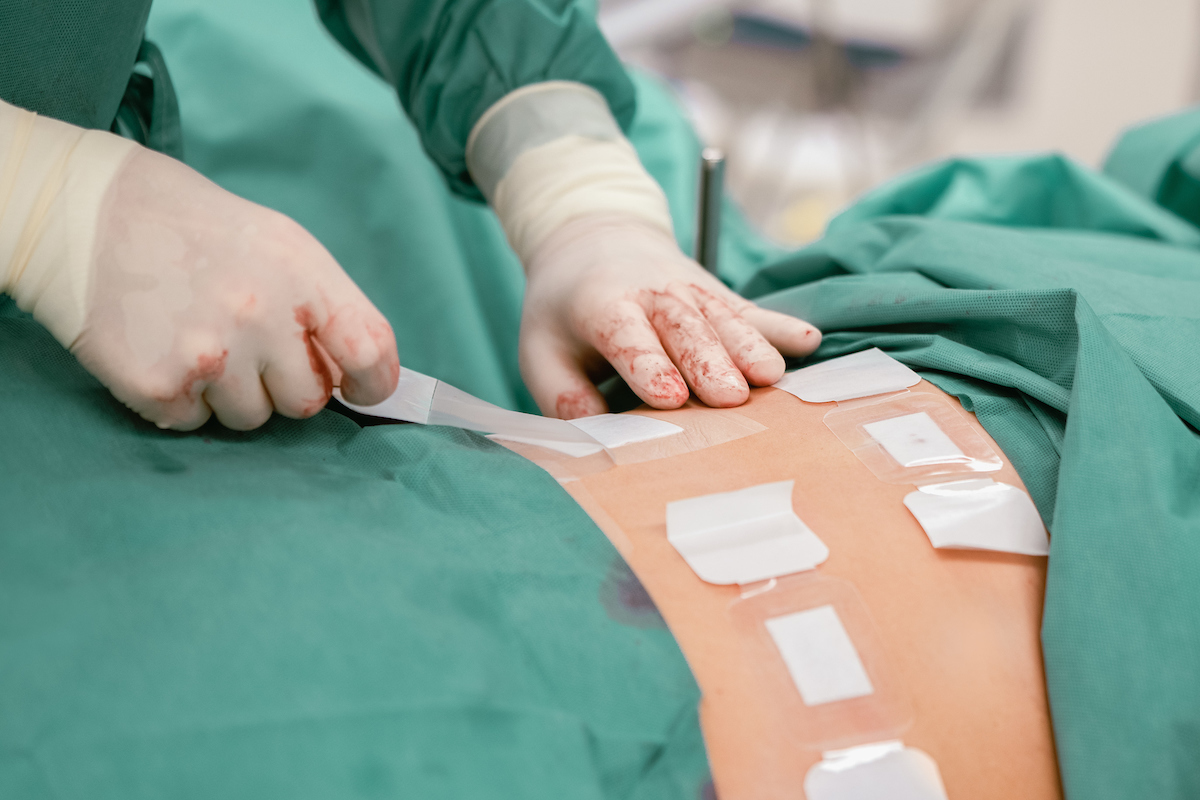Bariatric Surgeries
Bariatric Surgeries
Three types of Bariatric Procedures
At Klinikin we offer three types of Bariatric surgeries, all are performed with laparoscopy. A brief description of each procedure can be found below.
An individual with obesity can be healthy and free of diseases, but with increased obesity, the risk of serious secondary diseases such as high blood pressure, diabetes, and sleep apnea also increases. Obesity is a chronic condition, and treatment is always lifelong. Good nutrition and regular exercise are always the foundation of good health for everyone, regardless of weight. Accelerated recovery (not cure) can be achieved with bariatric surgery. The World Health Organization defines obesity as a body mass index (BMI) greater than 30 kg/m2 and severe obesity when BMI is greater than 35 kg/m2.
At Klinikin, we offer interdisciplinary services for individuals dealing with obesity. Our team includes surgeons, nurses, and a nutritionist who work closely together to help you achieve the best results.
Bariatric surgery is a medical procedure aimed at helping individuals with obesity achieve significant weight loss by altering the digestive system. Throughout the entire process, patients typically receive comprehensive care and support, including consultations at various stages before and after the surgery. Here’s an overview of the services provided around the bariatric surgeries:
Pre-Surgery Consultation:
- Initial Assessment with the Surgeon: Patients undergo a thorough evaluation to determine their eligibility for bariatric surgery. This includes medical history review, physical examinations, and possibly psychological assessments. This should be done in good advance and can be done through phone/video consultation.
- Education and Counseling: Healthcare professionals provide detailed information about the surgery, potential risks, benefits, and lifestyle changes required post-surgery. Patients also receive guidance on dietary modifications and exercise. We recommend you have the consultation within 3 – 6 weeks prior surgery.
Surgery Day:
- Procedure: The operation takes about 1 hour and you will stay in the post op recovery room for 1 – 3 hours.
Post-Surgery Care:
- Immediate Recovery: You will stay one night at The Klinikin Hospital Ward after surgery, where your vital signs and wellbeing will be closely monitored. We advise you to stay at a Hotel close by for the next 7 days.
- Nutritional Support: You will only drink fluids for the first 14 days, followed with a purred diet for the next 3rd and 4th week. After 4 weeks you should be able to eat small and frequent meals through out the day.
Consultation 6 Weeks Post-Surgery:
- Follow-up Visit: Patients typically have a post-operative checkup around six weeks after surgery. This appointment assesses the patient’s recovery progress, monitors weight loss, and addresses any concerns or complications. If you live abroad the consultaion can take place through phone/video call. We advice you to have bloodtest taken regularly.
- Dietary Guidance: Nutritional counseling continues, helping patients adapt to their modified eating habits and addressing any challenges they may face.
Consultation 6 Months After Surgery:
- Monitoring Progress: Healthcare providers evaluate the long-term impact of the surgery on weight loss and overall health.
- Lifestyle Adjustments: Patients receive ongoing support for incorporating physical activity and making sustainable lifestyle changes.
Consultation 1 Year After Surgery:
- Long-Term Assessment: The one-year follow-up is crucial for assessing the sustained effectiveness of the surgery and addressing any remaining concerns.
- Behavioral Support: Continuous counseling may be provided to help patients maintain a healthy lifestyle and manage potential challenges, including psychological aspects of weight loss.
Throughout the entire process, a multidisciplinary team, including surgeons, dietitians, psychologists, and other healthcare professionals, collaborates to ensure comprehensive care and support for patients undergoing bariatric surgery. Regular follow-ups and ongoing education are key components of successful long-term outcomes.
All Surgeries are Performed with Laparoscopy

Gastric Sleeve
Gastric sleeve surgery has become the most common obesity procedure and has been performed for over 10 years. The success is somewhat less compared to gastric bypass surgery, but the procedure has simultaneous advantages.
The likelihood of certain long-term complications is lower than with traditional bypass surgery and patients are less likely to experience dumping syndrome.
In gastric sleeve surgery, 85-90% of the stomach is removed, leaving a slender “banana-shaped” stomach with a volume of around 100 ml. There is no connection or bypass to the small intestine. Therefore, the risk of nutritional deficiencies is lower than with bypass surgeries.


Gastric Bypass
Gastric bypass surgery has been the most common obesity surgery in recent years. There is over 20 years of experience with this type of obesity surgery, and about half of all such surgeries are now performed in this way.
In the procedure, the stomach is divided into two parts, a small pouch that holds only about 20 ml (about the size of a golf ball). The small intestine is then connected to this pouch, redirecting the passage of food away from the larger portion of the stomach, the duodenum, and the upper part of the small intestine.
In the years following the surgery, you can expect a significant reduction in your excess weight. In the long term, you may anticipate losing around 65-75% of your excess weight.


Mini-Gastric Bypass
Mini-bypass is the latest variation of obesity surgeries. Its effectiveness in treating obesity and metabolic diseases such as type 2 diabetes, and this type of surgery is comparable to traditional gastric bypass surgery.
The procedure is simpler than traditional bypass surgery, and as an example, only one connection is made instead of two.
There is a lower risk of certain types of complications, such as dumping syndrome and hernia.
In the years following the surgery, you can expect a significant reduction in the largest portion of excess weight. In the long term, you may anticipate losing around 65-75% of excess weight
Bariatric surgeries quickly often alleviates various obesity-related comorbidities such as type 2 diabetes, cardiovascular diseases, cancer, and prevents premature deaths. It also significantly improves the quality of life due to less stress on weight-bearing joints, and many patients recover from sleep apnea.
Lasting success
To ensure lasting success, it is necessary to change lifestyle and diet. After the procedure, you may have difficulty tolerating simple carbohydrates and fatty meals, which can cause dumping. You may feel better on a diet rich in protein and vegetables. Following this operation, the effects of alcohol are more intense and the alcohol lasts longer in your body, and misuse can lead to alcoholism. Individuals with severe eating disorders are generally not advised to undergo bariatric surgery.
In addition to weight loss, gastric bypass surgery has a powerful impact on health. Over half of patients with type 2 diabetes recover and may stop using diabetes medications. The procedure also has very positive effects on cardiovascular diseases, reduces the risk of various types of cancer, and decreases premature deaths. About 80% of patients recover from sleep apnea. Women who have been unable to conceive often become fertile after the procedure. Remember to use contraception! Joint pain decreases, and overall quality of life improves.



Preparing for Surgery
We strongly recommend that you prepare yourself as thoroughly as possible, both mentally and physically for the procedure. Obesity is a complex condition that may require multidisciplinary intervention to achieve the best long-term results. It is important to start preparing for lifestyle changes regarding nutrition, exercise, stress and good quality sleep. In addition, it is crucial to prioritise mental health and seek appropriate support if needed.
Nutrition after surgery - simple guidelines
- Significantly reduce food high in energy, such as fast food, sugary, and fatty foods.
- Schedule your eating habits to eating every 2 -3 hrs., having 4 - 6 small meals a day.
- Set proteins as priority in every meal.
- Avoid drinking fluids before, during and after meals.
Frequently asked questions
Most people are losing about 50 - 70% of their excess weight within 1 - 2 years after the operation. Generally, there is greater success with gastric bypass surgeries than with sleeve gastrectomy.
Most people experience significant weight loss quickly; those with type II diabetes may achieve normal blood sugar levels anew, some can discontinue blood pressure medication, and those with sleep apnea may experience better quality of sleep. In general greater life satisfaction.
It comes as a surprise to many how quickly you recover after the surgery. Most are pain-free on the third day after the operation. You need to be on a liquid diet for 2 weeks after the surgery, and it can be beneficial to take it easy for 2 - 4 weeks while you are adjusting. You can get from your surgeon a sick leave certificate if needed.
Yes, it is important to understand that the surgery will give you a new setpoint, you will most likely have lost most of the weight in the first 1 -2 years. After that time your body will be prone to gain weight, and then it is important that your lifestyle has changed.
Your doctor recommends the type of surgery that suits you best.
Before you have sugery
If your doctor has recommended surgery for you, the procedure is as follows:
- Blood sample
- Admission interview
- Weighing and assessment on your body composition
- You may benefit from some weight loss prior surgery
